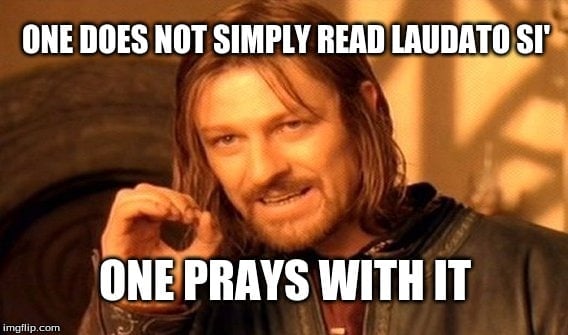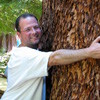Pope Francis’s latest encyclical, Laudato Si, dives into our present ecological crisis and gives us theological teaching. It provides rigorous sociological analysis, calls for dialogue, and suggests action steps. But most importantly, Laudato Si invites us into prayer. As a priest who studies the ecology of parasites, I found myself drawn to the following three themes:
1. The Least in Creation: It may well disturb us to learn of the extinction of mammals or birds, since they are more visible. But the good functioning of ecosystems also requires fungi, algae, worms, insects, reptiles and an innumerable variety of microorganisms. Some less numerous species, although generally unseen, nonetheless play a critical role in maintaining the equilibrium of a particular place (§34).
I’ve written before about the intrinsic value of all of God’s creatures (including the very parasites I spend my time studying), showing that because God created them, all creatures are intrinsically good. As a parasitologist, I find consolation in the fact that Pope Francis also finds value in those smallest of things, the ones that maintain a functioning ecosystem.
He even gives a shout-out to plankton: “Particularly threatened are marine organisms which we tend to overlook, like some forms of plankton; they represent a significant element in the ocean food chain, and species used for our food ultimately depend on them” (§40). Critters such as worms and plankton tend to be dismissed as unimportant by non-biologists, so I really enjoyed that the encyclical emphasizes the importance of the so-called “least” in creation.
2. The Greatness of God’s Love: God’s love is the fundamental moving force in all created things… Every creature is thus the object of the Father’s tenderness, who gives it its place in the world. Even the fleeting life of the least of beings is the object of his love, and in its few seconds of existence, God enfolds it with his affection (§77).
Laudato Si explains that every creature is the object of God’s love. The goodness of each organism even extends to “the harmonious ensemble of organisms existing in a defined space and functioning as a system” (§140). In other words, entire ecosystems, as creations of God, possess intrinsic value and goodness. Further, this “harmonious ensemble of organisms” exists in relationship, which appeals to my background as an ecologist.
And as a priest, I understand the “need to grasp the variety of things in their multiple relationships” to better know God (§86) while also appreciating that, “because all creatures are connected, each must be cherished with love and respect, for all of us as living creatures are dependent on one another” (§42). But this interconnectedness does not stop with organisms and ecosystems.
3. The Interconnection of Creation and Human Society: A true ecological approach always becomes a social approach; it must integrate questions of justice in debates on the environment, so as to hear both the cry of the earth and the cry of the poor (§49).
In Laudato Si, Pope Francis emphasizes the deep link between creation and social structures. The encyclical connects the least in creation with the least in society: “When we fail to acknowledge as part of reality the worth of a poor person,” he writes, “a human embryo, a person with disabilities…it becomes difficult to hear the cry of nature itself. Everything is connected” (§117).
As a biologist, this challenges me to extend my circle of compassion beyond charismatic mega-fauna such as panda bears to include worms and plankton. As a human person, it challenges me to extend my circle of compassion beyond those people in my own backyard to include those on the other side of the world. In ecology and humanity alike, it reminds me that we are all connected.
***
When my annual eight-day silent retreat begins this July I know I will pray again with Laudato Si. I hope that when I will reflect on the beauty, goodness and interconnectedness of Creation, I will experience again an ecological conversion.
I hope that you have the chance to let Pope Francis’ words affect you in a similar way, and that our Church will continue to work towards a similar conversion.
– // –


